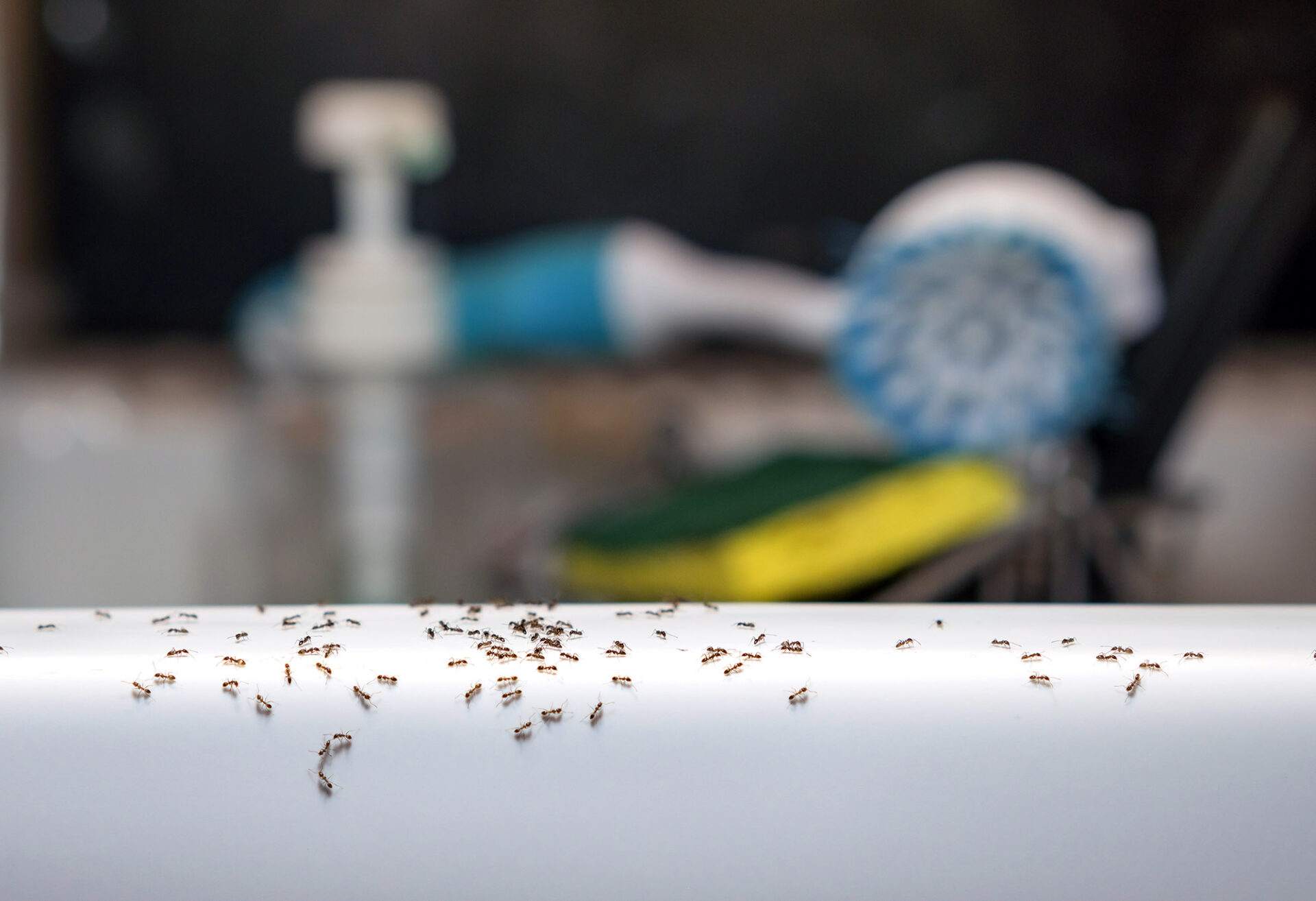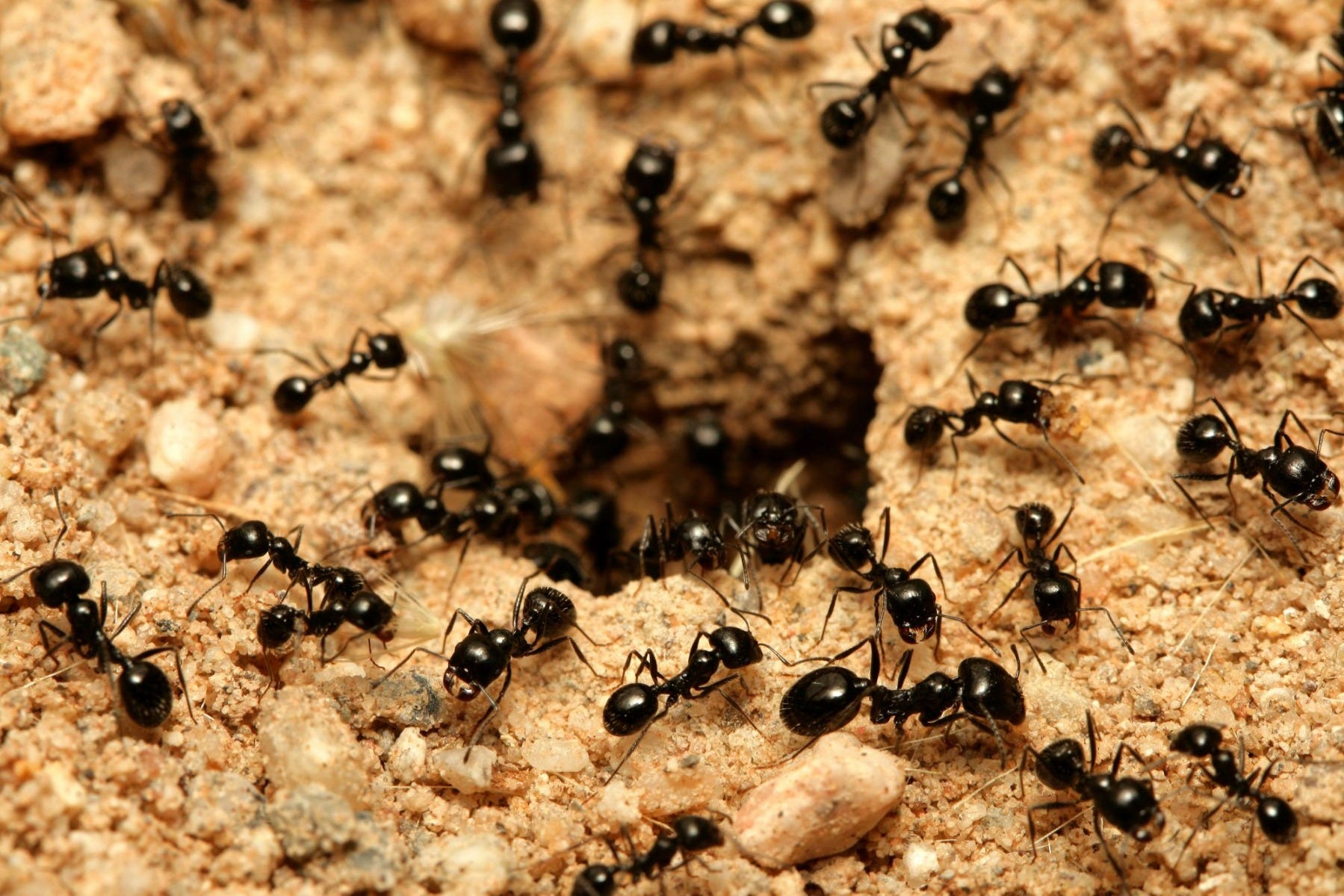Understanding Little Black Ants

Little black ants are a common sight in homes, often appearing in kitchens, bathrooms, and other areas where food and water are readily available. These tiny insects can be a nuisance, but they can also pose potential health risks. To better understand how to deal with little black ant infestations, it’s important to first learn about the different species, their behavior, and the potential health concerns they can present.
Common Species of Little Black Ants
Little black ants are a diverse group, but several species commonly infest homes. Here are some of the most frequently encountered:
- Pavement Ant (Tetramorium caespitum): These ants are among the most common household pests. They are typically 1/16 to 1/8 inch long and have a dark brown to black color. Pavement ants are known for their ability to form large colonies and their preference for sugary foods.
- Odorous House Ant (Tapinoma sessile): These ants are also small, measuring about 1/16 inch long. They have a distinctive odor, similar to rotten coconut, which they release when crushed. Odorous house ants are attracted to both sweet and protein-rich foods.
- Pharaoh Ant (Monomorium pharaonis): These ants are slightly larger than pavement ants, reaching 1/16 to 1/8 inch long. They are yellowish-brown to reddish-brown in color and have a distinctive, elongated head. Pharaoh ants are known for their ability to form multiple, interconnected colonies.
Behavior and Nesting Habits
Little black ants exhibit various behaviors and nesting habits depending on the species. Here’s a general overview:
- Foraging: Little black ants are opportunistic feeders, scavenging for food in a variety of locations. They are particularly attracted to sweet substances, such as sugar, honey, and fruit juices, but they will also consume protein sources, like meat and crumbs.
- Nesting: Little black ants typically create their nests in sheltered and humid environments. Common nesting sites include cracks in walls and floors, under appliances, and in the spaces between walls and furniture. These nests can house thousands of ants, including workers, queens, and larvae.
- Trail Formation: Little black ants communicate with each other through chemical trails. Once an ant finds a food source, it leaves a scent trail that other ants can follow. This allows colonies to efficiently exploit food sources and transport food back to the nest.
Health Risks Associated with Little Black Ant Infestations
While little black ants are not known to transmit diseases directly, they can pose potential health risks through:
- Contamination of Food: Little black ants are attracted to food and can contaminate it with bacteria and other pathogens. This can lead to foodborne illness if the contaminated food is consumed.
- Allergic Reactions: Some people may experience allergic reactions to ant bites or stings. These reactions can range from mild skin irritation to more severe symptoms like hives, swelling, and difficulty breathing.
- Psychological Distress: The presence of ants in the home can cause psychological distress, particularly for people with phobias or anxieties related to insects. This can lead to sleep disturbances, feelings of unease, and a general sense of discomfort.
Why Are They in My Bedroom?

Little black ants, also known as pavement ants, are common household pests that can be a nuisance, especially when they invade your bedroom. While they might seem like they’re just roaming around aimlessly, their presence is often driven by specific factors that attract them to your space. Understanding these factors can help you prevent future infestations and keep your bedroom ant-free.
Food Sources, Little black ants in my bedroom
Ants are attracted to food, and your bedroom might be harboring more food sources than you realize. Crumbs from snacks, spills from drinks, or even dust mites in your bedding can provide a feast for these tiny insects. It’s important to be mindful of these potential food sources and take steps to eliminate them.
- Regularly clean your bedroom, including vacuuming carpets and furniture, and wiping down surfaces to remove crumbs and spills.
- Store food in airtight containers to prevent ants from accessing it.
- Keep your trash can sealed and empty it regularly.
- Avoid leaving dirty dishes or food scraps on your nightstand or other surfaces.
Moisture
Little black ants are attracted to moisture, and your bedroom can be a haven for them if it’s damp. Leaky pipes, condensation from windows, or even damp towels can provide the moisture they need to thrive. Identifying and addressing these moisture sources is crucial to deterring ants.
- Inspect your plumbing for leaks and repair them promptly.
- Ensure proper ventilation in your bedroom to reduce condensation.
- Dry your towels completely after use and store them in a dry location.
Entry Points
Ants are adept at finding even the smallest openings to enter your home, and your bedroom is no exception. Cracks in the walls, gaps around windows and doors, or holes in the baseboards can all provide easy access for these tiny invaders.
- Seal cracks and gaps in your walls, windows, and doors with caulk or weather stripping.
- Repair any holes in your baseboards.
- Make sure your windows and doors fit tightly and close properly.
Cleanliness and Clutter
A clean and clutter-free bedroom environment can significantly reduce the chances of an ant infestation. Ants are more likely to be attracted to cluttered areas where they can find food and shelter. Maintaining a clean and organized bedroom can help deter them.
- Regularly clean your bedroom and remove clutter to eliminate potential food sources and hiding places for ants.
- Store items in containers to prevent ants from nesting inside them.
- Avoid leaving piles of laundry or dirty clothes on the floor.
Effective Control Methods: Little Black Ants In My Bedroom
:max_bytes(150000):strip_icc()/how-to-get-rid-of-ants-2656468-03-dac3d1173a054c65a85e645e5b3649f1.jpg)
Controlling little black ants in your bedroom requires a multi-pronged approach that addresses both immediate elimination and long-term prevention. This involves understanding their habits, identifying entry points, and implementing effective control methods.
DIY Solutions
DIY solutions can be effective for minor ant infestations. They are often less expensive and readily available. However, it’s important to understand that these methods might not be as potent or comprehensive as professional solutions.
- Borax and Sugar Mixture: This classic DIY solution attracts ants with sugar and then eliminates them with borax. Combine equal parts borax and powdered sugar in a shallow dish and place it near ant trails. Ants will carry the mixture back to their colony, leading to their demise.
- Boiling Water: Pouring boiling water directly on ant trails and nests can quickly eliminate them. However, be cautious as this method can damage surfaces and is not suitable for areas with sensitive materials.
- Peppermint Oil: Ants dislike the scent of peppermint oil. You can dilute peppermint oil with water and spray it around areas where ants are present. This can deter them and even force them to relocate.
Professional Pest Control
Professional pest control offers a more comprehensive approach to eliminating ant infestations. They have access to stronger pesticides and advanced techniques that can effectively target ant colonies.
- Liquid Insecticides: Professional pest control companies use specialized liquid insecticides to eliminate ant colonies. These insecticides are applied to areas where ants are present and can effectively target the queen and her workers.
- Bait Stations: These stations contain a slow-acting insecticide that ants carry back to their nest, eliminating the entire colony over time.
- Dust Insecticides: These are applied in areas where ants are present, such as cracks and crevices. They effectively eliminate ants by contact.
Preventing Future Infestations
Prevention is key to avoiding future ant problems. This involves sealing potential entry points and eliminating food sources that attract ants.
- Seal Entry Points: Inspect your bedroom for any cracks, crevices, or gaps around windows, doors, and plumbing. Use caulk or sealant to close these openings.
- Clean Up Spills and Crumbs: Regularly clean up spills and crumbs, especially in areas where food is stored. Store food in airtight containers to prevent attracting ants.
- Eliminate Moisture: Ants are attracted to moisture. Repair leaky pipes and faucets, and ensure proper ventilation in your bedroom.
Comprehensive Plan
A comprehensive plan for eliminating little black ants from your bedroom combines both DIY and professional methods.
- Identify Entry Points: Carefully inspect your bedroom for potential ant entry points.
- Implement DIY Solutions: Use DIY methods like borax and sugar mixture or peppermint oil to eliminate ants in areas where they are visible.
- Contact Professional Pest Control: If the infestation persists or is severe, contact a professional pest control company.
- Follow Prevention Tips: Implement preventative measures such as sealing entry points, cleaning up spills, and eliminating moisture sources.
